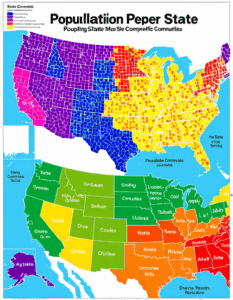Parenthood is a dance between holding on and letting go, and it’s all too easy to step on someone’s toes. Nowadays, in the delicate balance of raising children, the term ‘parent enabler’ crops up with increasing frequency, but its true meaning often remains shrouded in misunderstanding and misconception. Being a parent enabler can unwittingly cultivate dependency rather than nurturing growth, which is particularly devastating when dealing with the sensitive issue of addiction. This article will unravel the threads of enabling behaviors within families, offering insights and pathways towards healthier dynamics and the resilient love that can empower rather than encumber a child’s journey.

Understanding the Role of Enabler Parents in Family Dynamics
At the heart of the matter, a parent enabler is someone who inadvertently prevents their child from maturing and learning from their own mistakes. These are the parents who will bear protection over their addicted loved ones, paying for their bills and rent or bailing them out of jail, thus avoiding letting the addict face the consequences of their actions. The enabling pattern is a mix of love, fear, and a desperate desire to maintain a semblance of normalcy, but the long-term impact on family dynamics and individual development is profound.
First Aid for Enablers Ten Treatments for Enablers and the Addicts They Love
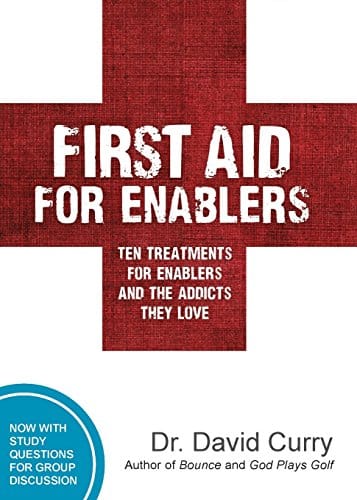
$12.95
First Aid for Enablers: Ten Treatments for Enablers and the Addicts They Love is a compassionate and insightful guide designed for those who find themselves in the difficult role of enabling loved ones struggling with addiction. This book provides a thorough examination of the dynamics between enablers and addicts, illuminating the often unconscious actions that can perpetuate the cycle of dependency. With ten carefully curated treatments, the authors offer practical strategies to help enablers understand their own behaviors, set healthy boundaries, and foster genuine recovery for both themselves and their addicted loved ones. Each treatment is presented in an accessible format, combining real-life anecdotes with step-by-step guidance to empower readers to make positive changes.
The heart of this book lies in its empathetic approach, recognizing that enablers need as much support and guidance as the addicts they care for. Through its chapters, First Aid for Enablers delves into the psychological underpinnings of enabling behavior, offering clarity and hope to those who feel trapped in a cycle of codependency. The authors emphasize the importance of self-care and provide tools for enablers to maintain their well-being while navigating the turbulent waters of addiction with someone they love. The book also addresses the challenging process of detachment and provides guidance on when and how enablers can take a step back to allow their addicted loved ones the space to seek treatment and heal.
First Aid for Enablers is more than just a guide; it is a lifeline for those caught in the crossfire of addiction. With an emphasis on the ten treatments, the book guides readers through the process of recognizing harmful patterns, communicating effectively with addicts, and transforming the enabler role into one of balanced support. The treatments are augmented with resources for additional help, making this book a comprehensive and essential tool for recovery. Whether you are a parent, spouse, friend, or caregiver to someone battling an addiction, First Aid for Enablers offers a path to hope and healing for both you and the addict in your life.
The Subtle Balance: How to Deal with an Enabler Mother or Father
Dealing with an enabler mother or father requires a nuanced approach, walking a fine line between understanding and firmness. It’s about tenderly holding space for their fears while encouraging them to reflect on the unintended consequences of their actions.

| Category | Description | Examples/Manifestations | Potential Consequences |
| Definition | An enabler parent protects an addicted loved one from consequences of addiction. | Paying bills/rent, bailing out of jail | Hinders addict from facing the reality of their addiction, delaying or preventing recovery efforts |
| Behaviors | Actions that facilitate the addict’s substance use or shield them from its repercussions. | Looking the other way while the child uses, ignoring warning signs | Increased dependency on parent, escalation of addictive behavior |
| Denial & Dismissiveness | Refusal to acknowledge the enabling behavior and its impact. | Disbelief, denial, and blame when confronted by the scapegoated child | Damaged family relationships, lack of trust, emotional trauma for the scapegoated child |
| Lack of Responsibility | Ignoring their role in exacerbating the addiction. | Not seeking help for the addict or the family, avoiding discussions | No attempts at intervention, leaving the addict without a support system for recovery |
| Difficulty Changing | Enablers may be deeply entrenched in their behaviors. | Claiming they are helping, resisting advice to change approach | Allows addiction to progress, diminishes the hope for the addict’s recovery |
| Impact on Family Dynamic | The entire family can be affected by the enabling behavior. | Other children feeling neglected or learning similar enabling behaviors | Strained family relationships, potential for multigenerational substance abuse problems |
| Addressing Enabling | Steps to stop enabling and start supporting recovery. | Seeking therapy, attending support groups, setting boundaries | Can lead to improved outcomes for the addict and healthier family dynamics |
Sign #1: Parents Who Enable Their Child’s Avoidance of Responsibility
One of the first signs of parents who enable is those who consistently shield their child from the responsibility of their actions.
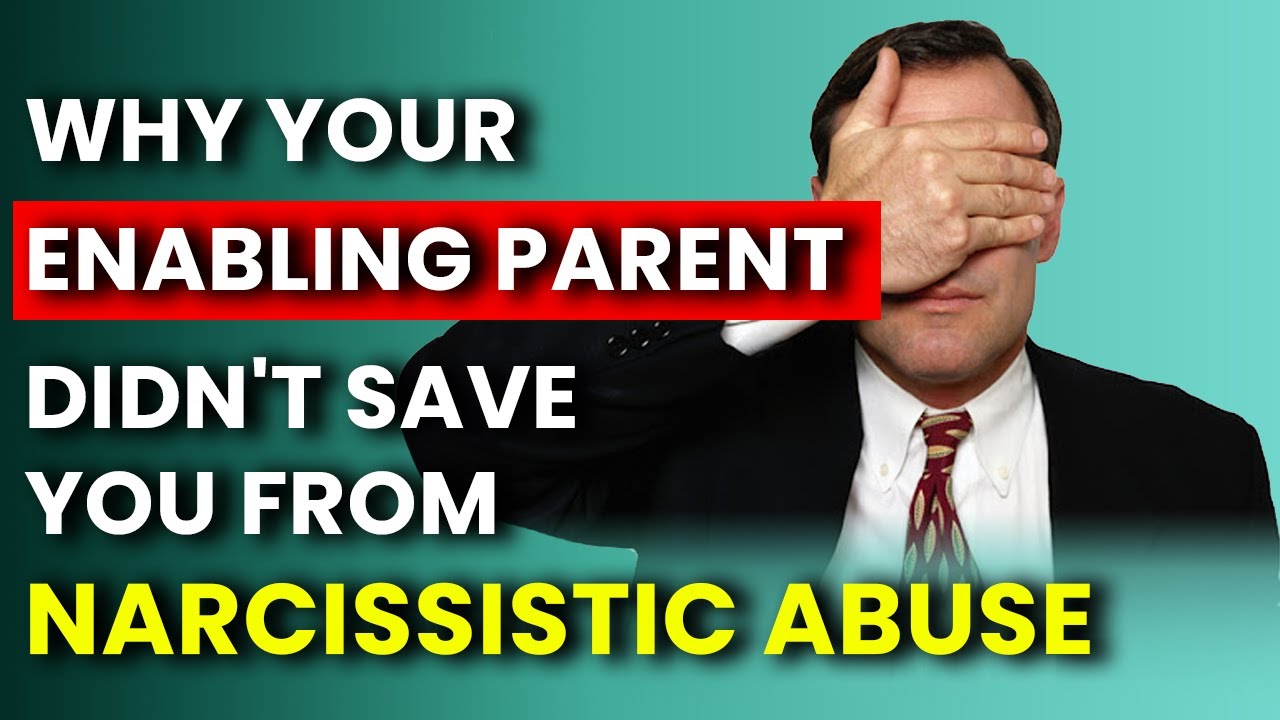
Sign #2: Ignoring or Dismissing Negative Behaviors
It might be turning a blind eye when the child breaks curfew or excusing more severe transgressions, like substance abuse.
Enabler T Shirt
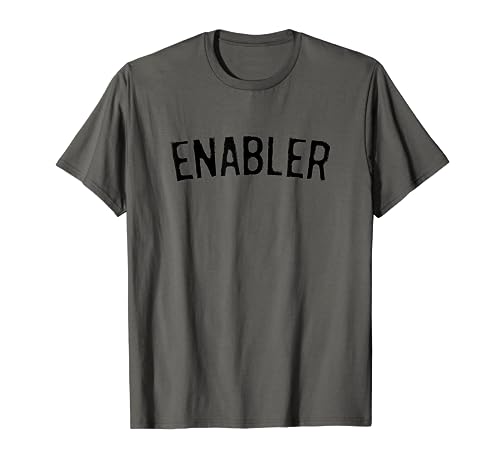
$19.95
The Enabler T Shirt is a cutting-edge fashion statement that combines comfort with a powerful message, tailored for individuals who take pride in being a source of support and empowerment for others. Made with high-quality, breathable cotton, this shirt ensures a relaxed fit for daily wear while maintaining durability wash after wash. Its bold, eye-catching typography stands out on the sleek, unisex design, making it a versatile choice for a variety of body types and personal styles. The classic black and white color scheme ensures it can be paired effortlessly with any outfit, making it a staple in both casual and smart-casual wardrobes.
On the back, the Enabler T Shirt features an inspirational quote that resonates with the spirit of encouragement and upliftment that the wearer represents. This design element not only enhances the shirt’s visual appeal but also sparks conversations, making it an ideal choice for community leaders, mentors, and anyone who strives to make a positive impact on those around them. The print is made using eco-friendly, fade-resistant inks, ensuring the message stays vibrant and clear, reflecting the enduring nature of the wearer’s supportive role.
Not just a fashion item, the Enabler T Shirt also aligns with a mission to give back, with a portion of the proceeds from each sale going towards community development programs. By wearing this shirt, consumers not only spread an empowering message but also contribute to the growth and support of various initiatives aimed at enhancing opportunities for others. It’s the perfect blend of style, comfort, and social consciousness, making the Enabler T Shirt more than just a piece of clothingit’s a symbol of hope and a catalyst for change.
Sign #3: Consistently Rescuing Your Child from Failure
The third sign is a propensity to rescue children from the natural consequences of failure.

Sign #4: Difficulty Setting and Enforcing Boundaries
Healthy boundaries are the protective Pouches that keep relationships safe. Enabler parents struggle to establish and uphold these limits.
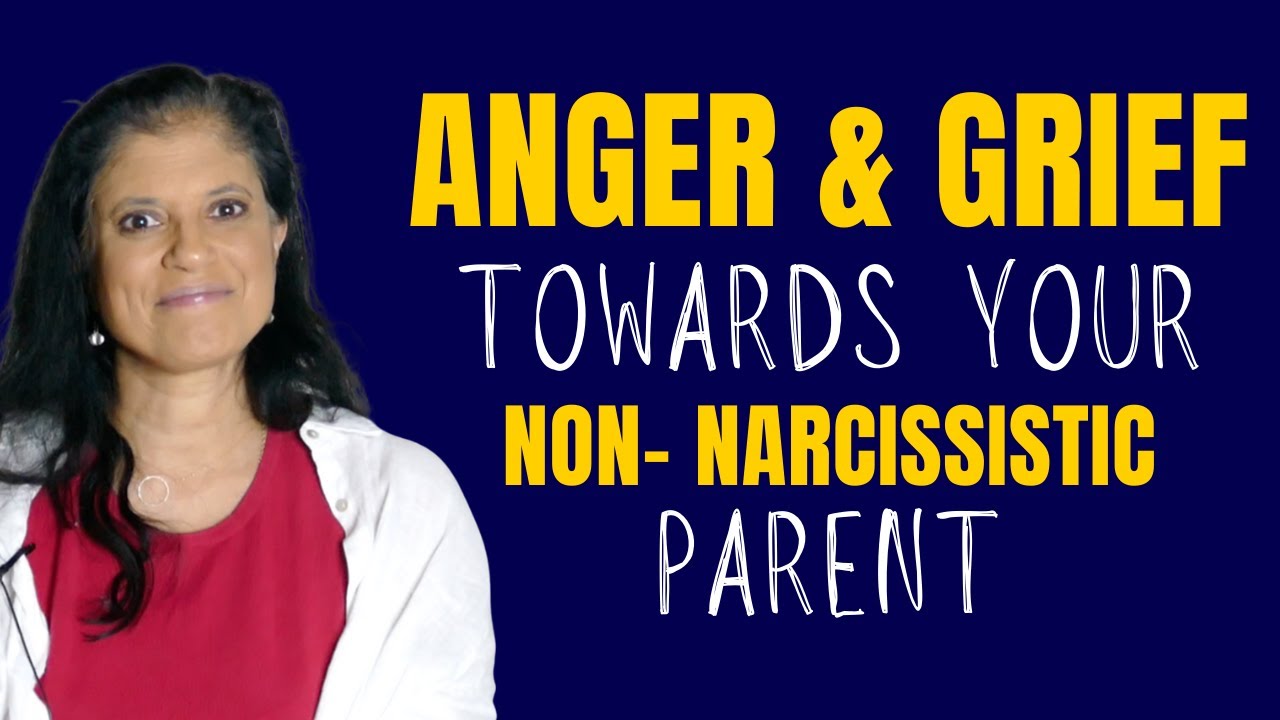
Sign #5: Financial Enablement Beyond Childhood
Financial support in adulthood can evolve from a helping hand to a crutch.
Addict in the Family Support Through Loss, Hope, and Recovery
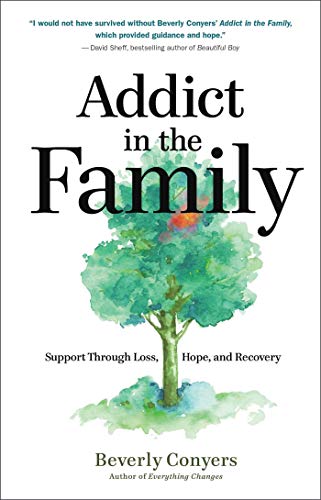
$14.99
“Addict in the Family: Support Through Loss, Hope, and Recovery” is an essential guide for anyone grappling with the heartache and confusion caused by addiction within their family. This insightful book provides a compassionate roadmap for those who feel lost amidst the turmoil of a loved one’s struggle with addiction. Through a series of powerful stories, expert advice, and practical tools, readers will find solace and actionable steps towards healing and understanding. Whether you’re dealing with the immediate crises of substance abuse or the long-term journey of recovery, this book offers a beacon of hope.
Exploring the complexities of addiction, this resource addresses the multifaceted impact it has on family dynamics, communication, and individual well-being. The book encourages family members not to lose sight of their own lives and well-being, while also offering strategies on how to support their addicted loved one in a healthy and effective manner. It covers crucial topics such as setting boundaries, navigating the emotional landscape of guilt and blame, and understanding the psychological underpinnings of addiction. Families will learn to foster resilience and to approach their situation with a balanced perspective that can help mitigate personal pain and foster positive outcomes.
“Addict in the Family: Support Through Loss, Hope, and Recovery” also delves into the difficult subject of loss, providing a sensitive and thorough examination of the grief process as it pertains to addiction. The book extends a hand to readers who are coping with the ultimate loss, offering them a path to navigate their sorrow and find peace. Moreover, it celebrates the stories of recovery, illustrating the potential for change and the strength of the human spirit in the face of adversity. Acknowledging the ongoing journey that recovery often entails, the book continuously emphasizes the importance of hope as a vital component in the process of rebuilding family relationships affected by addiction.
What Is an Enabler Parent? A Deeper Look into the Behavioral Patterns
What is an enabler parent? It’s someone whose actions, though well-meaning, allow their child to avoid facing the full brunt of their decisions—especially when addiction is involved.

Breaking the Cycle: Proactive Strategies for Redirecting Enabling Behavior
Proactive strategies are vital in redirecting the course from enablement to empowerment.
The Journey Toward Balanced Parenting: Stories of Transformation and Growth
Deep transformation often begins with tough, personal reflection.
Conclusion: Fostering Independence Through Conscious Parenting
In the end, it all comes back to fostering independence through conscious, intentional parenting.
In a world that can be unforgiving, learning to identify enabling behaviors is not just a skill but a necessity for any parent, especially for those with children struggling with addiction. At MothersAgainstAddiction.org, we understand the fine balance required in raising children, and especially the additional challenges when addiction enters the fray. Our heart goes out particularly on this 10-year anniversary Of death for those who have lost their battles, but also to the living—those striving every day to support a loved one in healthier ways.
To all the parents reading this, wondering if there might be more to the friction and struggles at home, take a moment to reflect on the signs outlined above. Are they familiar? Do they strike a chord? If the answer is yes, know that transformation is possible. Whether you’re a mother or father feeling lost on this journey, remember, your child addict – here’s what you do: start with love, a fierce and steadfast commitment to their and your own growth, and a step towards balance and resilience.
For in-depth guidance and support, please visit MothersAgainstAddiction.org, where you’ll find a compassionate community and resources designed to help you navigate the rough seas of parenting a child with addiction. Because sometimes, being the anchor is not about holding your child tightly bound to you, but about keeping them steady as they learn to weather the storms on their own.
Spotting the Signs of Being a Parent Enabler
Hey there, super moms and power dads! Have you ever found yourself wondering if you’ve crossed the line from supportive parent to, well, a parent enabler? That’s right, sometimes our love can turn into a cushion that’s a tad too comfy for our kiddos. So, let’s play a little game of trivia and dig into some interesting tidbits that’ll help you spot if you’re enabling rather than empowering!
Quiz Time: Are You Accidentally Fueling the Fire?
First off, if the words “My child could never do that!” frequently pop out of your mouth, you might want to grab a mirror and say hello to an enabler! It’s one thing to believe in your child, but another to wear rose-colored glasses. If you’re blurting out defenses faster than a character on The good doctor cast solves a medical mystery, it could be a sign you’re not facing the facts head-on.
Crunching Numbers Without Crunching Hope
Let’s face it, dealing with numbers can be as satisfying as biting into one of those 0 calorie Snacks. But when your kid’s bank account hits zero and you’re speed-dialing the “mortgage without a job” hotline to float them some cash, that’s enabler territory. Sure, you don’t want them to struggle, but what invaluable life lesson are they munching on if the Bank of Mom and Dad always serves up a bailout buffet?
The Tough Love Menu
Sometimes love’s gotta be as tough as a two-dollar steak. If sugary sweet support is all you’re serving, your recipe might just add to the problem. Imagine you’ve learned Your child addict Heres What can be done to help. If your first instinct is to sweep it under the rug rather than face the issue head-on, you’re definitely warming that enabler seat.
The “Let Me Handle That for You” Syndrome
Ah, the classic. Your kiddo messes up, and quicker than a hiccup, you’re there to clean up. But hold on, superhero parent! If you’re swooping in faster than a contestant on a game show whenever trouble calls, then your cape is flapping in the enabler wind. Rather than teaching them to fish, you’re throwing the catch straight into their laps. And that’s no way to reel in responsibility, now is it?
The Road Less Traveled… By Your Child
Last but not least, if your footprints are the only ones on the path of your child’s journey, it might be time to take a breather. Let ’em walk that road! It’s like when you’ve read every article on child addict Heres What You do, but still don’t let your kid take the reins on their recovery process. Hand-holding is for toddlers, not for teens or young adults trying to navigate life’s obstacles.
And there you have it! Some food for thought mixed with a dash of fun facts. Remember, being a parent is about guiding your little ones—err, growing ones—toward their own success, not paving the path so smooth they never learn how to handle a bump. Keep loving ’em, but let ’em learn. Stay savvy, parents, and watch for those signs of being a parent enabler.
Up the Hill Backwards
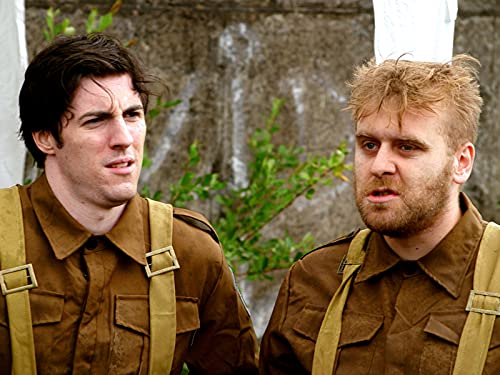
$N/A
“Up the Hill Backwards” is an exhilarating board game that promises a blend of strategic gameplay and lighthearted fun, perfect for family game night. Designed for 2-6 players aged 8 and up, the game challenges participants to navigate their pieces up a whimsically illustrated hill, filled with a series of unpredictable paths and obstacles. Each player must make strategic decisions to advance while simultaneously setting traps and hindrances for their opponents, adding a layer of complexity as they race to the summit.
With its simple roll-and-move mechanism enhanced by special power-up cards, the game is easy for beginners to learn but offers enough depth to keep experienced gamers engaged. The power-up cards can provide short boosts, reverse other players’ progress, or even trigger mini-games that offer a quick detour from the main game, ensuring that no two playthroughs are the same. The combination of luck and skill required to win appeals to a wide audience, making it a top choice for those looking to fuel their competitive spirit.
The artwork of “Up the Hill Backwards” is a visual treat, featuring a colorful hillside that includes quirky characters and zany pitfalls. This game not only serves as an entertaining challenge but also a beautiful centerpiece on any table. To top it off, the high-quality components and durable game board ensure that “Up the Hill Backwards” can be enjoyed for countless game nights to come. Whether it’s the thrill of the climb, the joy of outsmarting opponents, or the satisfaction of reaching the top first, this game guarantees laughter-filled sessions for friends and families alike.
What does an enabler parent do?
What does an enabler parent do?
An enabler parent, oh boy, they’re the ones rolling out the red carpet for bad behavior – they’ll often dismiss or make excuses for their child’s missteps, all in the name of love, of course! Think of them as the sidekick to a child’s misadventures, nodding along, saying ‘It’s all good,’ when maybe it’s not.
What makes a parent an enabler?
What makes a parent an enabler?
Ah, what turns a loving parent into an enabler? It’s usually when they can’t stand to see their kid struggle or face consequences, so they swoop in like Superman to save the day – but instead of fighting villains, they’re fighting off the very experiences that could help their kid grow up. Yikes!
How do you handle an enabler parent?
How do you handle an enabler parent?
Oh, handling an enabler parent is like trying to juggle with one hand – tricky but not impossible! Start by setting clear boundaries, communicating openly, and don’t back down when they try to smooth things over. It’s a bit like teaching them to fish, instead of just giving them the fish every day!
When your mother is an enabler?
When your mother is an enabler?
When your mom’s the enabler, well, that’s a tangled web! It’s all about gentle confrontation, sandwiching the hard truths with love, and nudging her towards letting you face the music yourself. Like, “Mom, I love you, but I’ve got to wear my big kid pants now.”
What are three characteristics of an enabler?
What are three characteristics of an enabler?
First up, enablers have a Ph.D. in excuse-making, specializing in justification arts! Next, they’ve got a black belt in conflict avoidance – would rather walk over hot coals than have a tough convo. And lastly, they’re super generous, often giving too much help or resources – talk about overdoing it!
What is a codependent enabler parent?
What is a codependent enabler parent?
A codependent enabler parent is someone who’s got their life so tangled up in their kid’s that you can’t tell where one ends and the other begins. It’s as if they need their child to need them – they’re stuck together like glue, and not in the cute craft project kind of way.
What are the four types of enabling?
What are the four types of enabling?
Get ready, ’cause we’ve got a lineup: Firstly, we have Direct Enablers, handing out get-out-of-jail-free cards like it’s Monopoly. Then there are Social Enablers, always smoothing things over at parties. We’ve also got Emotional Enablers, patching up feelings instead of teaching coping skills. Lastly, there are Material Enablers, who throw money or gifts at the problem and hope it’ll disappear. It’s like a twisted superhero team!
What is a toxic enabler?
What is a toxic enabler?
A toxic enabler is someone who’s like a sidekick to bad behavior, not just turning a blind eye, but decking out the bad habits with glitter and calling it a party. They’re in deep, making things worse without even realizing – kind of like watering a weed and expecting a rose.
Who is more likely to be an enabler?
Who is more likely to be an enabler?
Well, anyone can become an enabler, but it’s often the big-hearted folks, those who can’t say ‘no’ or hate to make waves. They’re the ones handing out lifelines like candy on Halloween, even when it’s not treats that are needed, but a little bit of tough love.
What is an enabler personality?
What is an enabler personality?
People with an enabler personality are like personal cheerleaders for all the wrong moves. They’re supportively supportive in an unsupportive way, if you catch my drift. They’re often empathetic to a fault, missing the forest for the trees when it comes to helping others.
How do daughters of narcissistic mothers act?
How do daughters of narcissistic mothers act?
Daughters of narcissistic mothers often end up playing a tough game of emotional tug-of-war. They might bend over backward trying to snag Mom’s approval or swerve to the other lane, acting out just to be seen. It’s like shadowboxing with your own reflection – exhausting and a little confusing.
What is the difference between enabler and codependent?
What is the difference between enabler and codependent?
It’s kinda like squares and rectangles – all squares are rectangles, but not vice-versa, you know? An enabler might just assist bad behavior, but codependents are in it for the long haul, they’re joined at the hip, both getting something out of the unhealthy dance. Two peas in a pod, but the pod’s got issues.
How do you deal with toxic enablers?
How do you deal with toxic enablers?
Dealing with toxic enablers is like defusing a bomb – you’ve gotta be super careful. Keep your cool, set your boundaries, and stick to them like superglue. And remember, it’s okay to seek professional help ’cause untangling the messy wires in relationships ain’t a DIY project.
When your mother plays the victim?
When your mother plays the victim?
When Mom plays the victim card, it’s like she’s got the best hand at poker but still insists she’s losing. It’s all about understanding her game and not getting roped in. Offer empathy but don’t fall into the trap – ’cause let’s be real, you can’t play referee and player at the same time.
Is an enabler a victim?
Is an enabler a victim?
Now, enablers can seem like victims, with all their good intentions paving the road to chaos. But here’s the kicker – they’re often choosing that role, maybe without even knowing it. They’re like accidental accomplices in the crime of not letting folks learn the hard way.
What is an enabler personality?
What is an enabler personality?
An enabler personality is like a backstage crew for a bad performance – they’re helping put on the show but not fixing what’s going wrong on stage. They’re the ‘Yes’ men and women who fuel the fire instead of helping to put it out, all in the name of helping. Gotta love the irony!
How do daughters of narcissistic mothers act?
How do daughters of narcissistic mothers act?
Daughters of narcissistic mothers often wear masks to survive the show – one for obedience, one for rebellion – changing them based on Mom’s script. It’s a real-life drama where they’re cast for a role they never auditioned for, always aiming to find their spot in the limelight of Mom’s approval.
Does an enabler love you?
Does an enabler love you?
Ahh, the million-dollar question! Enablers often do love you – to infinity and beyond! But here’s the rub: their love’s tangled up in being needed, so they keep you flying low to make sure they can still play hero. It’s like they’re holding the kite string a little too tight, not quite letting you soar on your own.
What is the difference between enabler and codependent?
What is the difference between enabler and codependent?
So, codependent is the whole shebang – where both folks are leaning on a shaky fence for support. Meanwhile, an enabler is just propping up one side of the fence, often with the best intentions but, you know, the road to chaos is paved with those. Different roles, same messy backyard.





